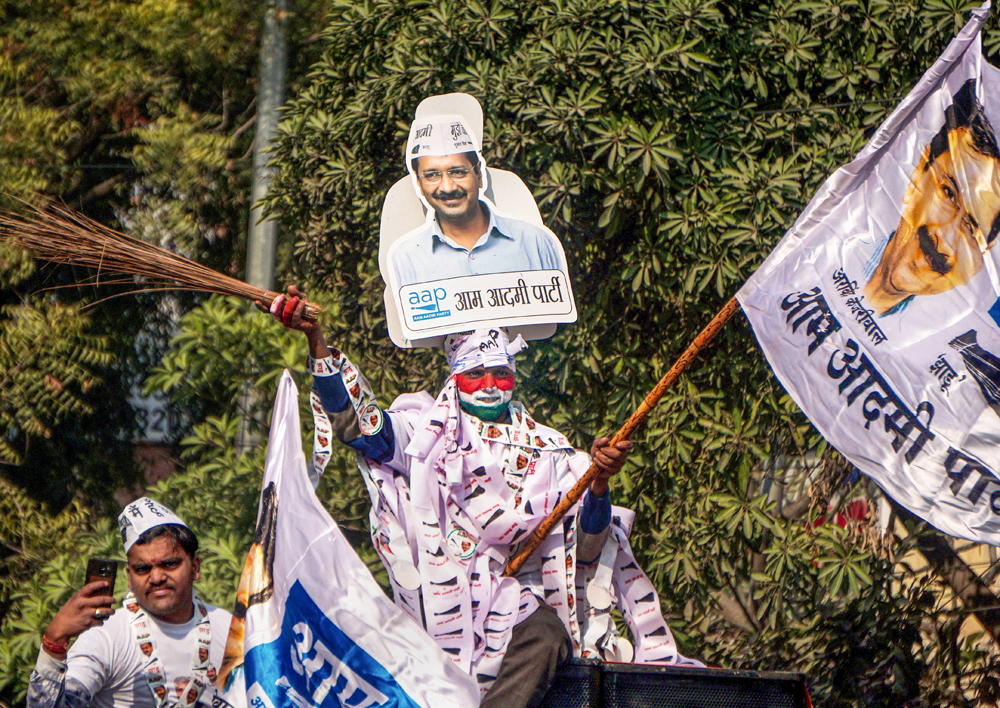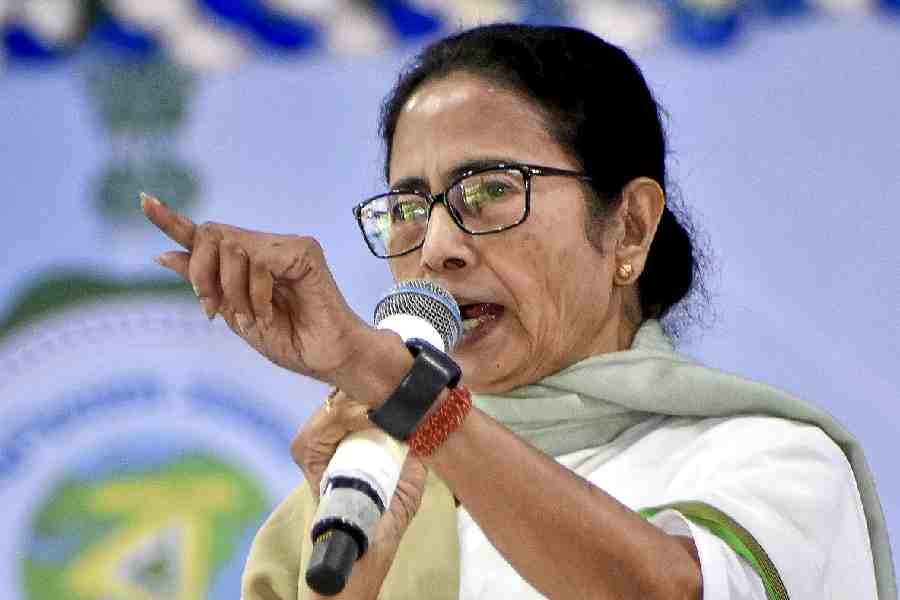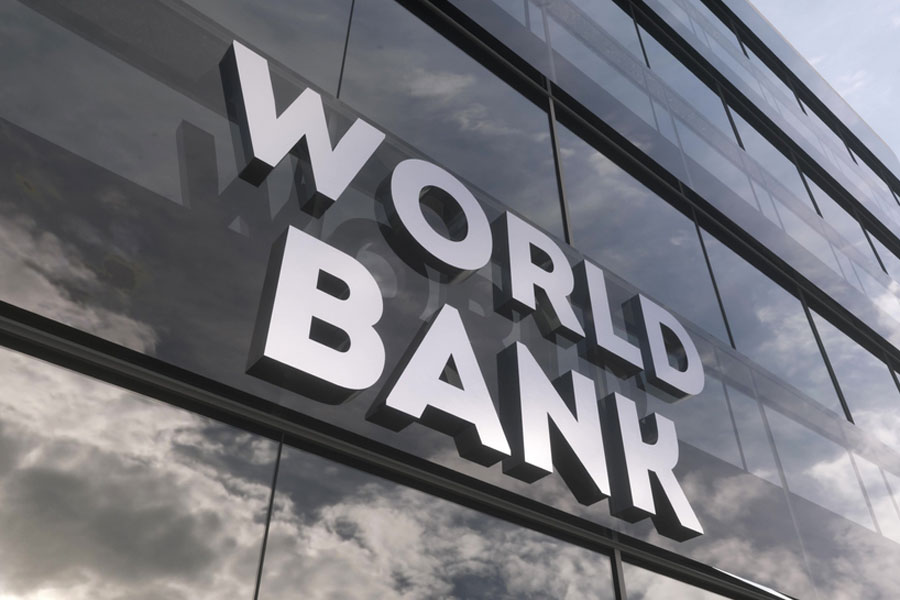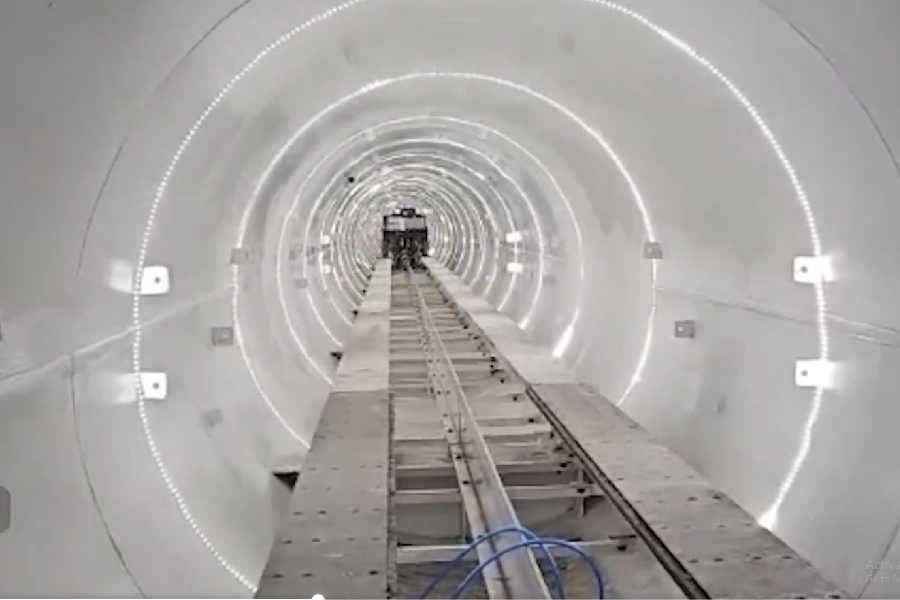The crux of the Delhi Assembly election contest is between the might of the Modi-Shah-led BJP and a rejuvenated, but cautious Arvind Kejriwal, who has strategically decided to go into the hustings as the saviour of the city.
The BJP has been steadfast in the way it has stuck to its core agenda of spearheading a divisive campaign, this time centered around the “anti-national” protests against CAA and NRC at Shaheen Bagh. But Kejriwal has not given in to provocation.
He has determinedly stayed away from talking about Shaheen Bagh, which his party has been describing as a “national issue”, a problem created by the Union home ministry under Amit Shah that is “behind” the amended citizenship legislation.
The Delhi chief minister has instead projected himself and his Aam Aadmi Party (AAP) as the engine of civic governance, concentrating on education, electricity and health care. He is seeking votes in the name of jal. Not the prevailing sentiments at JNU and Jamia.
Within a week we will figure out if his shadow boxing has worked better than the Modi-Shah nationalistic gambit. But exit polls seem to have made up their minds unanimously.
The King can do no wrong seems to be the view of many voters as the Delhi election campaign draws to a close. At the state level, that means Kejriwal scores higher than his own party with voters while at the national level, it means that Prime Minister Narendra Modi is far ahead of his own party.
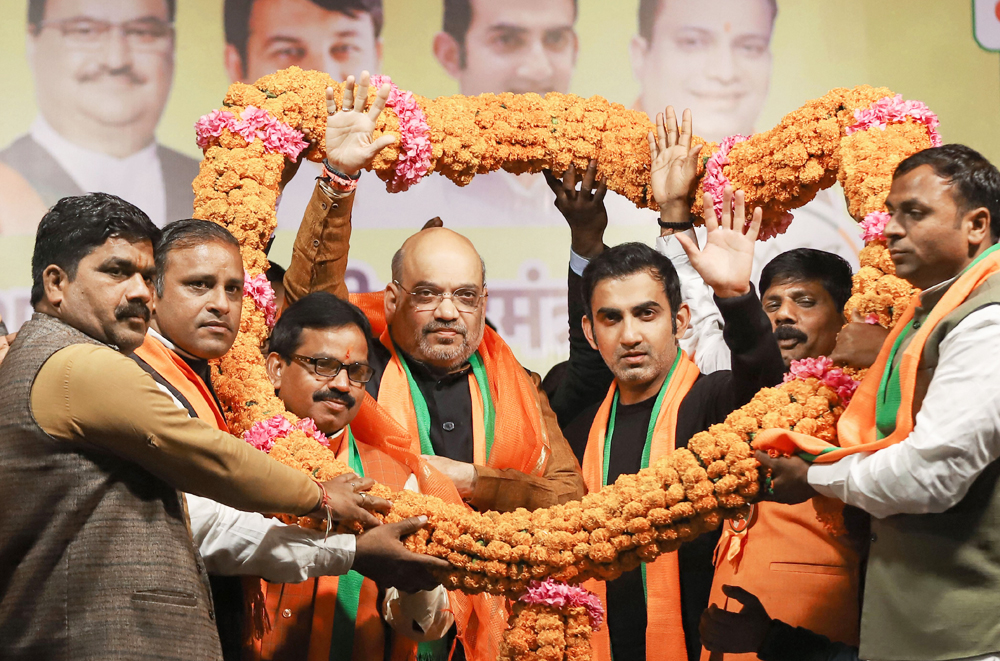
Union Home Minister Amit Shah being garlanded during an election campaign rally ahead of the State Assembly polls, at Kondali in New Delhi, Wednesday, February 5, 2020. (PTI)
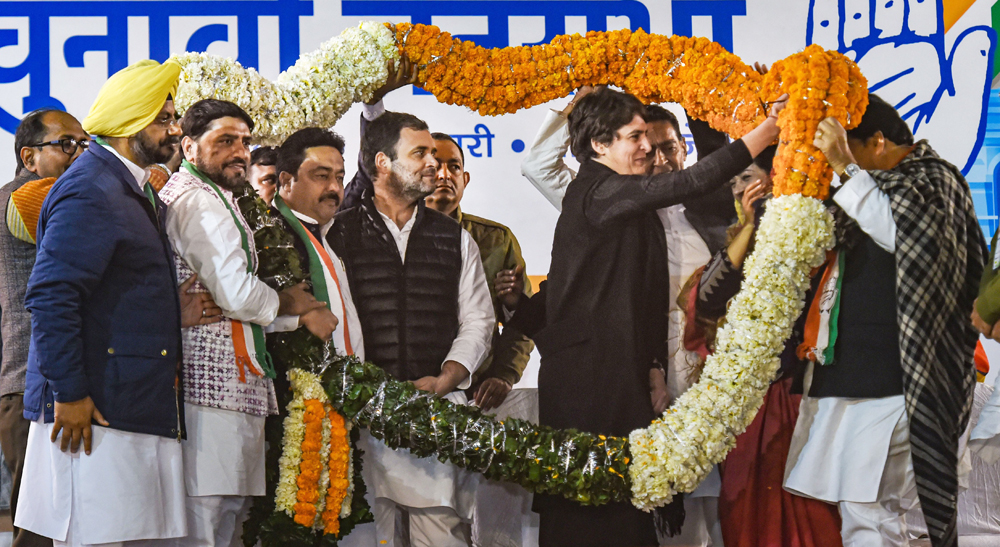
Congress Leaders Rahul Gandhi and Priyanka Gandhi being garlanded during an election campaign rally ahead of the State Assembly polls, at Hauz Qazi Chowk in New Delhi, Wednesday, February 5, 2020. (PTI)
All the opinion polls, without exception, forecast that the Kejriwal-led AAP will repeat the almost clean sweep it made in 2015, when it won 67 out of 70 seats in the Delhi Assembly, though it may lose a few seats here and there. Amazingly, all three major polls, released in recent weeks, offer almost the same numbers with only the slightest variations.
Most strikingly, IANS-CVoter predicts a smashing AAP victory and suggests that the party could pick up anywhere between 64 and 59 seats, which would be an amazing performance after five years in power. The poll says that the BJP may get just between three and 13 seats, despite its ferocious attack against Shaheen Bagh which the party has made the lone centrepiece of its campaign.
The numbers also indicate that the BJP is vulnerable at the hustings if faced by a strong opponent that can match it in electoral tactics and offer good performance. If the polls are to be believed, Kejriwal is every bit as good as Modi, when it comes to walking on water with voters.
Also, for the BJP, this could end up being the sixth defeat in a row at the state elections, which would then be seen as a considerable defeat for a party that was seen as an election-winning machine. It also shows that voters are willing to vote for Modi but less willing to hand the party power at the state level.
A Times Now poll comes to much the same conclusion and estimates that AAP will once again score a blockbuster victory, picking up between 54 and 60 seats and conceding about 10 to 14 to the BJP. The poll reckoned that the Congress which, under Sheila Dikshit, ruled the city for 15 years, will only pick up two seats, at most.
In percentage terms, Times Now predicted the AAP will get 52 per cent of the votes compared to BJP’s 34 per cent.
An earlier poll, conducted by NewsX-Polstrat also concluded that AAP will win between 53-56 seats. Like the other polls, this one released in the last week of January estimated that the BJP would win 12-15 seats and the Congress between two and four.
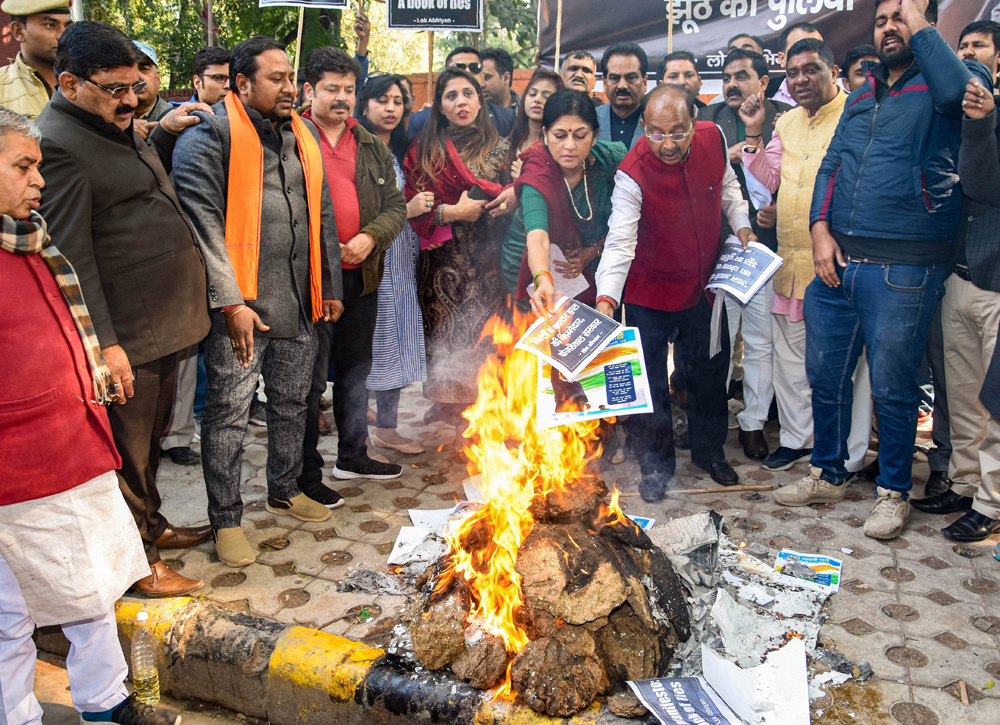
BJP leader Vijay Goel and others burn copies of AAP's manifesto, ahead of State Assembly polls, in New Delhi, Wednesday, February 5, 2020. (PTI)
Most interestingly, as in earlier years, the Times Now poll shows that if a general election were held now, the BJP would once again win all seven seats in the city, as it did by huge majorities last May and also in the 2014 general election.
As the numbers indicate, there’s a high degree of satisfaction with both Kejriwal and the AAP who are reckoned to have done good work during their time in office. A huge 59.57 per cent of people polled by NewsX-Polstrat gave the thumbs up to the party and its boss. Another 24.61 per cent said the party’s performance had been average. Only 15.51 per cent were unhappy with the party.
Kejriwal and AAP have scored highly, mainly for their efforts in the health and education sectors. In other fields, like pollution, women’s safety and jobs voters said AAP needed to do more work.
A more in-depth survey by Lokniti-CSDS says the BJP’s core base in Delhi is from the Brahmin and Bania communities, and it is seen by voters as the party that represents these two communities.
By contrast, AAP has snatched the Congress’s core base of Dalits and Muslims and some OBC communities. Notably, the Jat community, which has a strong presence in Delhi and the surrounding region, is now with the BJP, according to the survey.
It is not clear, though, if these patterns would hold in the general elections where the BJP scores huge wins.
The Lokniti-CSDS study also says that 41 per cent of Delhi’s population is made up of privileged castes. This is a higher percentage than states in the Hindi heartland and they form the core of the BJP’s supporters.
Both the AAP and the Congress were heavily dependent on support from Muslims and Dalits who make up 14 per cent and 17 per cent of the city’s population respectively. Many of the voters in these two communities switched support from the Congress to AAP.
Amongst the leaders standing for election, an IANS-Neta App survey found that after Kejriwal, AAP’s deputy chief minister Manish Sisodia is the most popular and highly rated leader. Sisodia represents the Patparganj constituency in East Delhi. The agency said its findings were based on an online vote of 6.5 lakh voters carried out over a two-year period.

